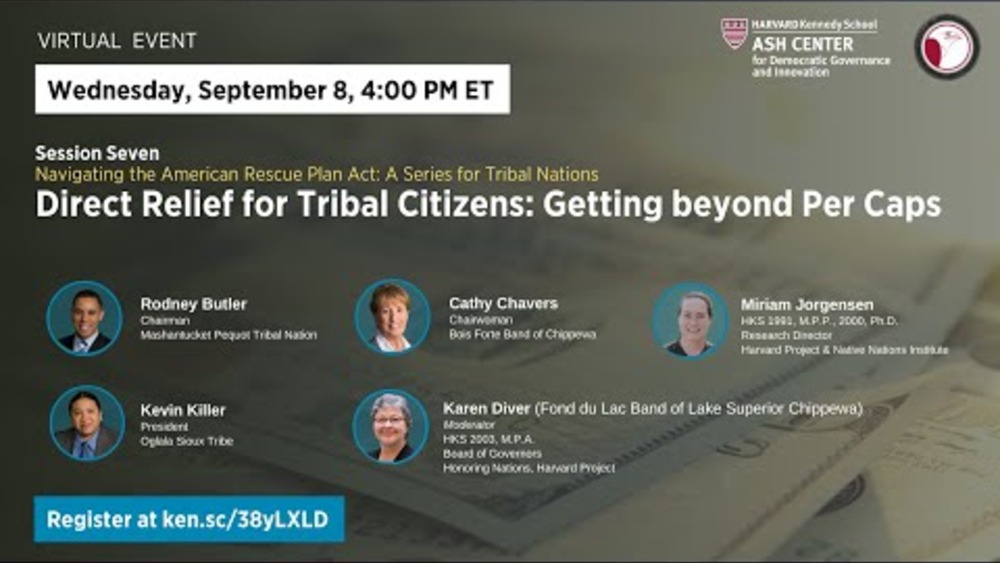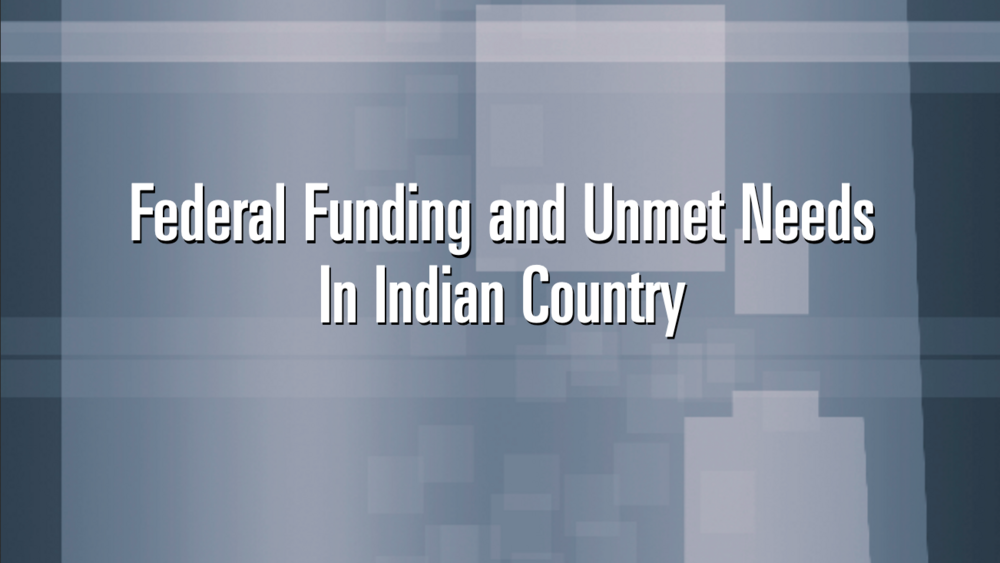The American Rescue Plan Act (ARPA) provides the largest single infusion of federal funding into Indian Country in the history of the United States. More than $32 billion is directed toward assisting American Indian nations and communities as they work to end and recover from the devastating COVID-19 pandemic – which was made worse in Indian Country precisely because such funding has been so long overdue. From setting tribal priorities, to building infrastructure, to managing and sustaining projects, ARPA presents an unprecedented opportunity for the 574 federally recognized tribal nations to use their rights of sovereignty and self-government to strengthen their communities. As the tribes take on the challenges presented by the Act, the Ash Center’s Harvard Project on American Indian Economic Development presents a series designed to assist tribes, to help tribes learn from each other and from a wide array of guest experts.
This second session, titled “Where Other ARPA Monies Live -- How to Avoid Tribes Leaving $12 Billion on the Table” will feature a range of experts including:
- Stacey Ecoffey, Principal Advisor for Tribal Affairs, U.S. Department of Health and Human Services (HHS)
- Heather Dawn Thompson, HLS 2000, J.D, Director of the Office of Tribal Relations, USDA
- Burton Warrington, President, Indian Ave Group
- Moderated by Karen Diver HKS 2003, M.P.A., Board of Governors, Honoring Nations, Harvard Project
Presentation slides: ARPA Breakdown by Department, Agency | U.S. Treasury Deadline Update | USDA farmers.gov
Additional Information
“Where Other ARPA Monies Live -- How to Avoid Tribes Leaving $12 Billion on the Table.” Harvard Ash Center. June 9, 2021. Livestream. (https://www.youtube.com/watch?v=XFCwTISYaXY, accessed May 30, 2024).


